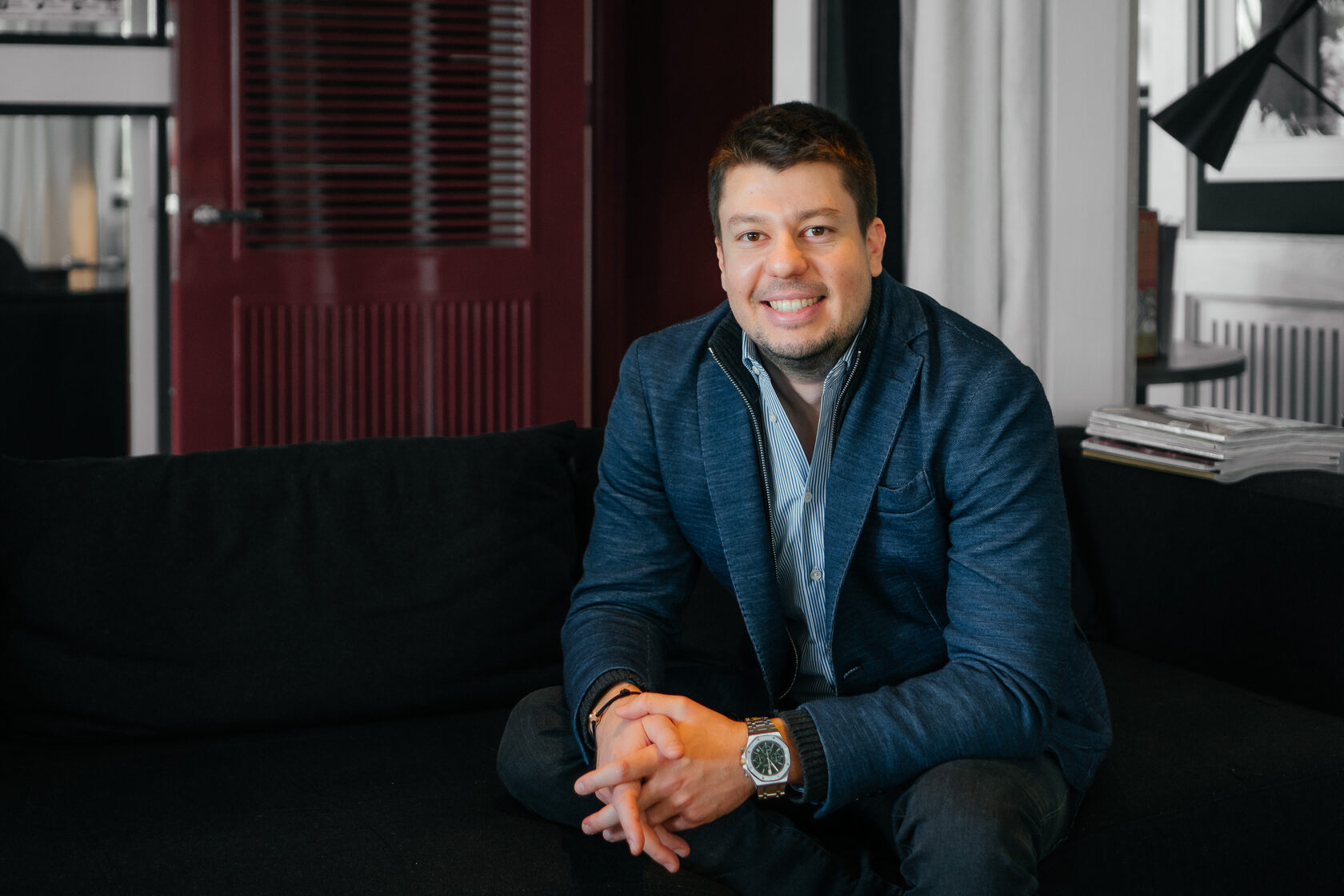Three weeks ago, while attending a joint event of London School of Economics and Political Science and University College London - the famous Eurasian Business Conference, I had the pleasure of crossing paths with an inspiring young entrepreneur. Rashid Aliyev, 27 years old, an alumnus of University College London (UCL) (2019) made a great impression from the beginning - confident, yet welcoming and humble, he greeted me in between the meetings of the busy agenda of the event.
We had a quick chat and I was compelled to share Rashid's journey with our readers - a path of determination, resilience, and unwavering dedication to one's dreams. Eager to delve deeper into his story, I prepared the questions that interested me the most and entrusted Anastasija Usova, a talented Clever Magazine's contributor and a fellow UCL alumna herself, to conduct an insightful interview that would illuminate Rashid's quest from academia to entrepreneurship.
We hope his story will serve as an inspiration for aspiring young innovators around the globe.
Please tell us about your academic journey, why did you choose London and the UCL School of Management?
Striving for a top university, I was deeply motivated by my family's expectations and my brother's success at UCL, setting a high bar for myself. During my final high school years, I focused intensely on my studies and preparation, supported by tutors, to meet this goal. After graduating in Azerbaijan, I opted for the UK, partly due to familiarity and proximity, over the US.
Facing the requirement of a foundation year due to the educational system's structure, I enrolled in UCL's intensive preparatory course. Despite my efforts, I narrowly missed the conditional offer's grade requirement. Faced with the possibility of settling for another university or reattempting the foundation year elsewhere, I chose to persevere. With my family's support, I pursued and excelled in a foundation course at SOAS, eventually securing my place at UCL.
This journey taught me the value of resilience and the importance of pursuing one's goals with determination, a lesson that has shaped my approach to challenges and opportunities.
How did your experience at UCL influence you? Did your studies contribute to your entrepreneurial mindset?
Firstly, I don't think that there is a specific course you have to do to become an entrepreneur. I know a lot of great founders that did philosophy or completely non-business related courses. In my case, it was a course called ‘Information Management for Business’.
The cool thing about this course, in my subjective view, is that it doesn't make you an expert in one specific niche or in one specific field. Graduating from it you're not a top accountant or you're not an expert marketing person, you're not a top programmer. Yet, because you have modules from field like programming, marketing, software engineering, statistics, accounting you get to understand how business works.
I think it is super important for any founder, entrepreneur or a business person to understand how different parts of your business operate, so that then you can manage people and do the job.
The other factor I would add here is the structure of the course. It was very much dedicated to teamwork and building your soft skills. 80% of all the assignments that we did were team course works or presentations and pitches.
On every single assignment you have a certain team and you have one common goal and you have to make it work. You have to contribute with your work, you have to present, you have to build the soft skills to work and coordinate together with others; all whilst everyone is coming from different parts of the world bringing their different backgrounds and cultures to the table.
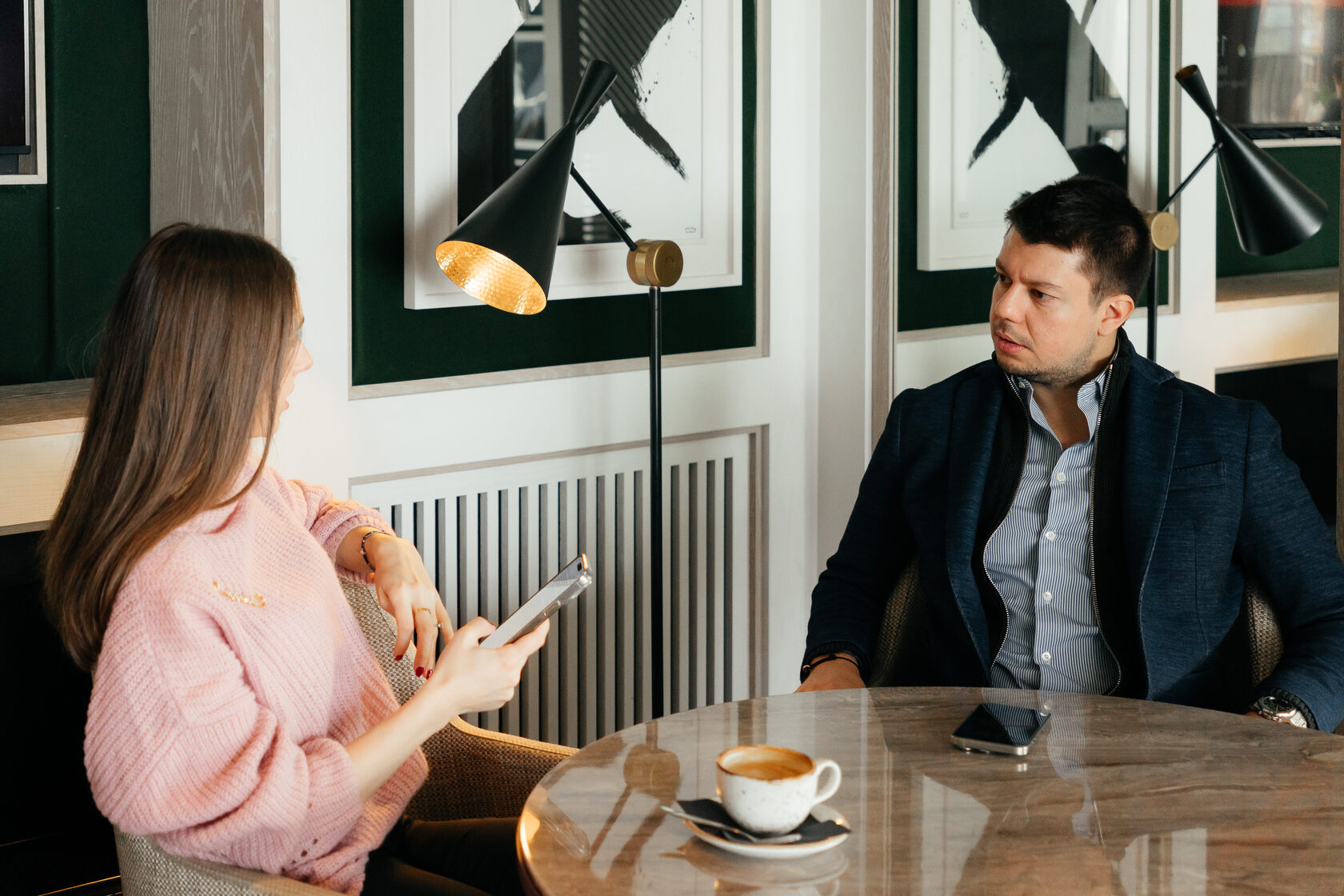
Let’s discuss your entrepreneurial journey. You are the founder and CEO of Stackt - a platform that aims to digitise the moving and storage process. Why did you choose to dedicate yourself to startups, rather than immersing yourself into a 9 to 5 job?
I think every human being is formed by his environment and speaking of that, I was raised in a very entrepreneurial family. My dad was an entrepreneur and so from very early ages, I pretty much understood what entrepreneurship and building the business is all about. Sleepless nights, calls at nights, stress, non stability. Seeing my dad and my brother, I've just grown into that environment and to me it was something natural. That was essentially the seed origin where my interest towards business was coming from.
Having got to UCL and having started studying business, I became the president of a business society, which meant that all of a sudden we started inviting a number of high profile entrepreneurs and speakers like Evgeniy Chichvarkin and Misha Zelman to come and speak at UCL.
I was very fortunate to start building personal relationships with them which in turn contributed to my understanding of what business is all about. In context of all these experiences I got exposed to, I just got passionate about building stuff. And passion is important because it is tough building a business or building a Start-Up specifically if you're going into that venture building journey with VCs on board.
There is a big misconception that it's all cool and easy when you see all those big titles at TechCrunch or, someone's raising a million, 10 million, 100 million. Yet it's just the tip of the iceberg because no one shows how tough it is to build that business, or how tough it is to get that million, million pounds or a few million pounds raised. There's a lot of work, a lot of sleepless nights coming into that.
But the other side of the coin is your direct impact on the result, which attracts me. Being a founder, you have a direct impact from your decisions, time and energy that you invest into the building journey to the final result. When you're in a corporate environment, you're essentially one element amongst a lot of other elements, right? So there's politics in between.
Here you have the full freedom of any decision that you want to make. You have a certain target and it is completely up to you to build the right strategy, to make the right decisions, to build the right team, to have the right people alongside you and to just make it work.
It is a tougher journey, but you have a huge advantage on the other side in the sense of freedom, passion, having these challenges and then overcoming them and proving to yourself and to your team that you can do it. Then setting bigger targets to conquer with your team.
What are the main challenges and benefits of being a startup founder? What personal characteristics and set of skills should a person possess to become successful on a startup founder pathway?
There are certainly many characteristics to a successful founder. If I were to choose one, I'd say that's resilience, because building any venture is about a lot of challenges that you face on the way. Facing these challenges, trying to resolve them, understanding the certain lessons learned on the way and using those insights to do another sprint and move forward is one of the key qualities. So it is about being confident and believing in yourself and that you'll eventually get there by doing everything that you can in order to get to your goal.
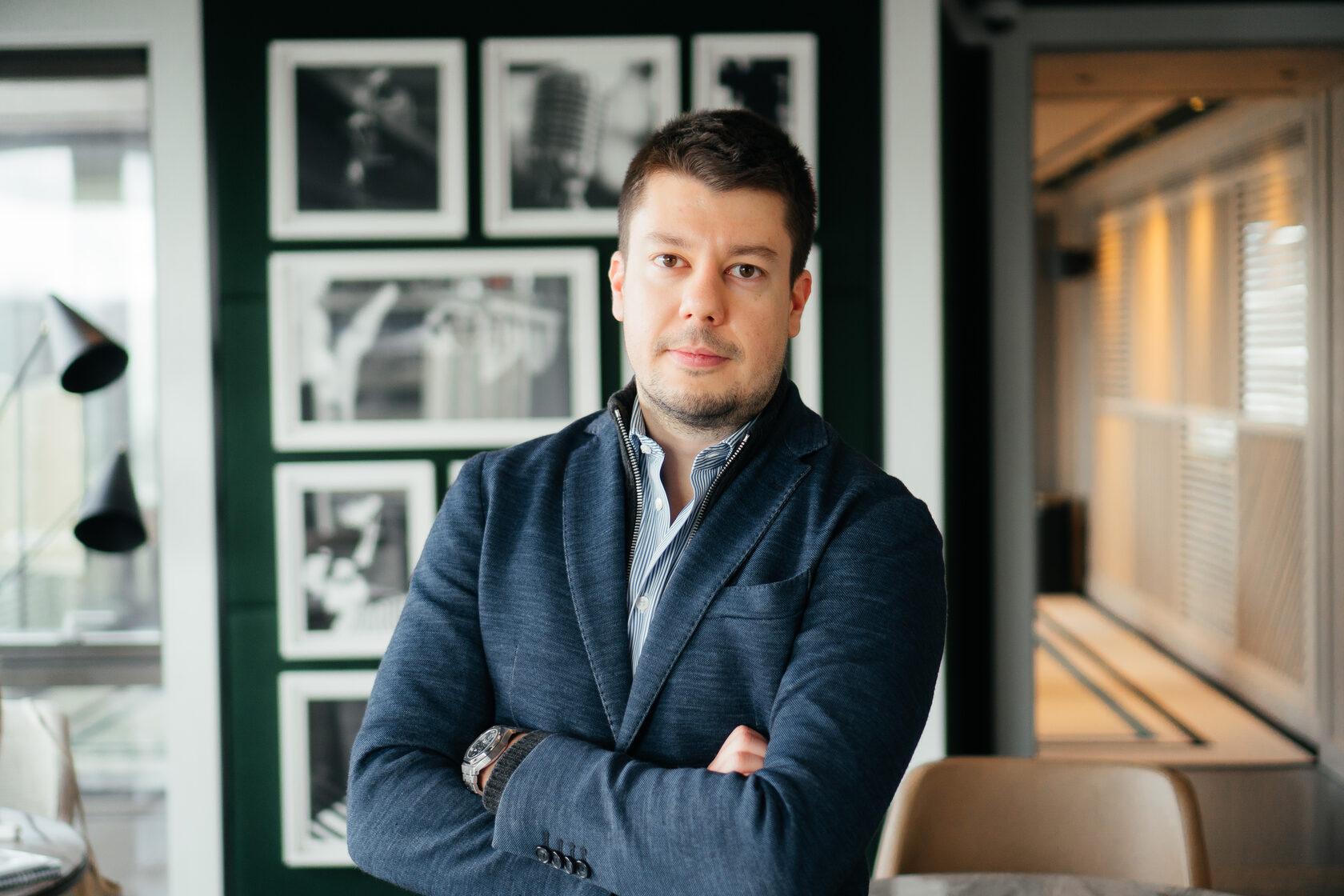
What sparked the idea for Stackt, and what inspired you to address it through technology?
Having lived in London for the past ten years, as any other big city person, I've moved a bunch of times. Probably over 6 or 7 times I moved and I've stored in between, specifically when I used to be a student. So when you do that, I just had this personal pain, where we live in the 21st century, where you can get any service you want in a matter of clicks: ordering food via Deliveroo or ordering something from Amazon and it will be delivered to you the next day.
But nothing has majorly changed over the past 100 years in the way people move or store stuff. And that's something that inspired us. We see the huge trends in this market and industry getting bigger because a lot more people are moving into the bigger cities, apartments becoming more expensive. In other words, they're becoming smaller and there's just a shortage of space to store your personal belongings.
Because this industry is one of the least technologically disrupted industries in the world, having implemented certain technologies into the processes, you can automate a lot of processes as well as increase the efficiency. By doing this you are able to provide a better, more affordable and lower prices for your customers at a way better service. That's something that we live by and it is one of the main value propositions of Stackt.
Stackt has gained substantial traction in the UK. What challenges did you face in establishing the business, and how did you overcome them?
Stakt was launched in May 2021. We bootstrapped for the first 12 months, then we raised our first round in May 2022, having grown five times since then. Over the next 18 months, we raised our seed round, and it was one of the major challenges for me as a founder, because that was in 2023. A lot of people from the ecosystem know, that was one of the worst years for raising external capital and the VC capital in particular.
Tackling that takes me back to the matter of resilience, trying, learning, using all your skills, speaking to a lot of people, trying to understand how you manage the situation, how you resolve the challenge using your network. Essentially you have a lot of parameters in your hand, and you're trying to juggle it in a way that the formula works out. And you don't give up. Because at the end of the day, by the time we were raising, we had 15 people on board, 15 full time team members whom we have to pay salaries. We were generating revenue and everything was good on paper. But because there were certain economic challenges that were outside of our control we decided to attract investment.
Back to that element of resilience and learning from the challenges that you face - you get to grow your business from persisting and trying different ways and different solutions that may eventually work.
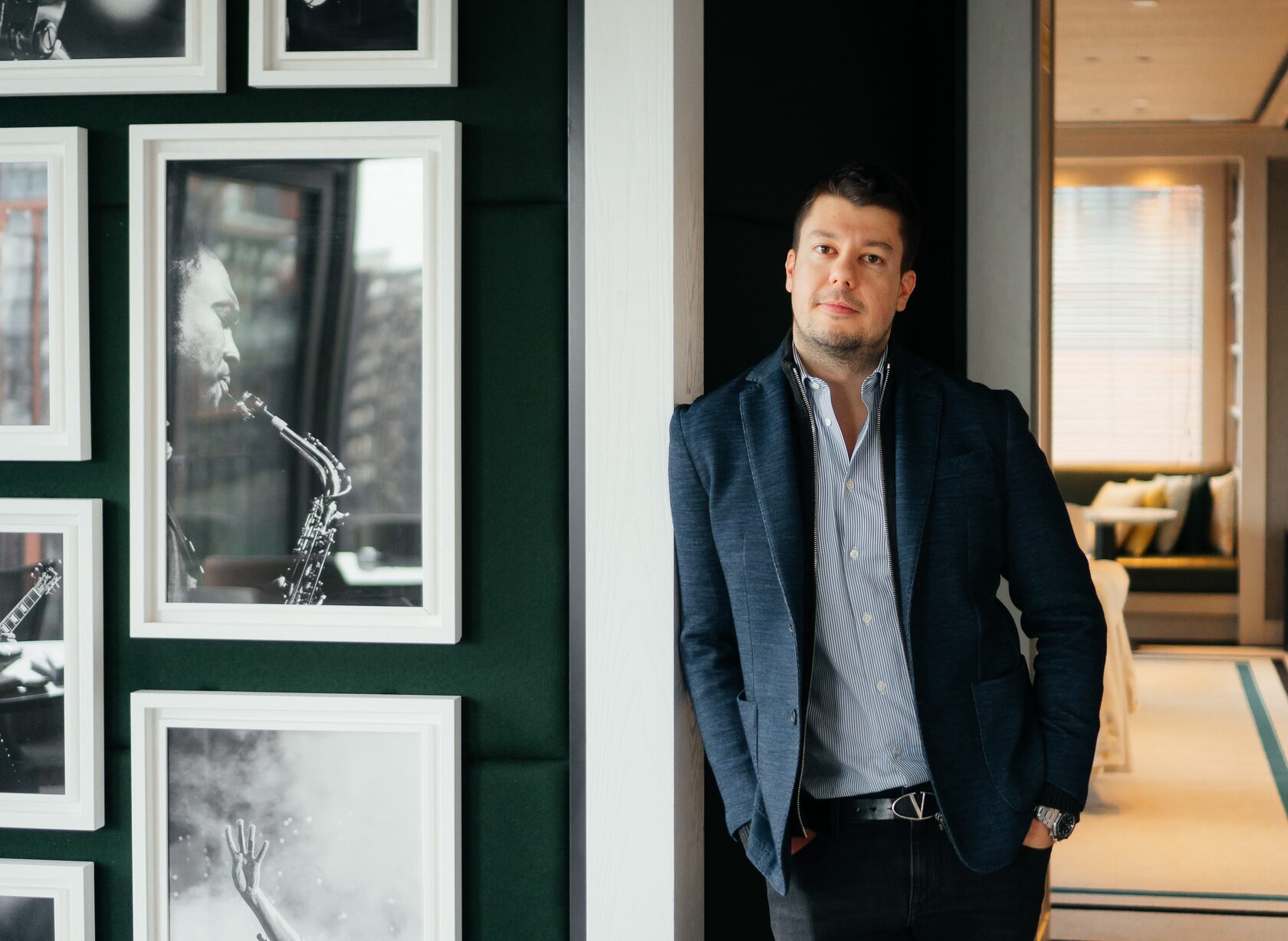
Stackt has seen remarkable year-on-year growth. What factors do you attribute to this success, and how do you plan to sustain and build upon it?
One of the main things that you must have in building this adventure is your team. I think having the right people on board, having people that are passionate about your vision, about what you're building is the key. A founder cannot be an expert in all the fields of the business - marketing, sales, operations, finance and more.
Maximising the potential, learning as you grow is crucial because it's not like if you have the right team you will avoid all the possible mistakes. You would still be making mistakes, but it's a matter of how you reflect on it and how you adapt your processes and vision moving forward.
Congratulations on securing funding from a variety of investors! How do you plan to utilise the £1 million investment to expand Stackt into Europe and the US?
Considering the current economic situation, in the VC ecosystem as many people know a lot of companies and startups are trying to break even so that they have a stronger position and lower dependency from the external funding. It may change in the future, but at least this is what it is now after the boom of 2021. So answering your question, the number one goal is to optimise the business to break even before our series A round.
Alongside that we have to launch a test format on international markets so that we have a footprint in another market before series A round. Because it’s the series A rounds that are for proper international expansion, 1 million, of course, is not enough for that. It's a very small amount of money to go internationally, specifically to conquer the US market. And in order to conquer that market, you need way more money.
What we need to do as of now is to be fully ready for that. It means building all fundamentals and processes that can be easily replicated. That’s what it means to be ready for an international expansion. Building the business model and the process that we can then replicate, adapting to the needs of the certain market and launching it there.
I am planning to grow the business to breakeven, which will put us in a very strong position before series A round, with higher multiples in terms of our valuation and also to have one international footprint. Then we will be ready to go fully international.

Globally, almost 50% of young people move home each year, and moving can be particularly challenging for students. How does Stackt specifically cater to the needs of students in rented accommodation?
We need to remember that when we launched Stackt, there's a certain term in business called "beachhead market" which means that you have a certain market that you start offering your services to. Then you test to what extent it works or not. Then you start expanding by targeting the other segments.
I believe students are more technologically savvy, and we want to make the service easily accessible to them by having the tech specs, like a website, a nice UX UI, strong customer service, convenience and eventually an appealing price offer, which is probably one of the key things when we're referring to this target segment.
When you look at the market as of this moment, you have two main alterations. One is the dodgy man and the van services that you can never trust, or super expensive moving and storage companies. We are right in the middle here, by offering a very technological, convenient, simple customer experience and at a very affordable price, which I think is one of the key things for the student target segment.
As a UCL graduate, how has your educational background played a role in shaping Stackt's technological solutions?
One of the key things that you as a student get exposed to when studying at a university like UCL is people that are coming from different backgrounds. Being able to learn how to collaborate with them and achieve common goals by contributing your own piece of the cake to the final goal that is the key.
I think soft skills that you develop during your study years, is one of the crucial things, not only in building the business but overall, building anything in an extremely international world that we live in today.

As a UCL alumnus, did you receive any specific support and resources from UCL that were instrumental in the early stages of Stackt's development?
Yes, crucially, in terms of the visa UCL was my endorser. I got my innovator visa endorsed by UCL Hatchery, which is essentially a startup incubator or accelerator within UCL. As of today, I'm on an innovator visa endorsed by UCL, which I think is very valuable. Otherwise I wouldn't be here in the UK and I wouldn't be able to run this business and Stack wouldn't exist at all.
Other than this legal support in terms of immigration and visas, the UCL Hatchery incubator is a great resource in its own. They have a physical space that you can use, they run a number of regular events, support sessions, they invite different people to come and speak to you.
I'd say the crucial thing is that you have other people alongside you that are going through the same journey as you are going through. You can meet other founders that are also being endorsed by UCL, collaborate, get feedback, get support, get guidance.
At the end of the day, all entrepreneurs are going through the same journey more or less. Whether you're raising finance, whether you're building teams, whether you're building operations, the industries may be different, but the steps are pretty much the same. So having this sense of community with other people that are going through the same journey as you is a super important asset.
Looking back, is there anything you wish you had known when you first started Stackt, and what advice would you give to your younger self or to other early-stage entrepreneurs?
Building a startup or any other venture is like a rollercoaster - one month you are on the top of the hill, the other you feel super down and you don’t know what to do. I think one of the key things to remember during those moments when you feel miserable, and they will happen as things always go wrong, is to use those as best learning points and learning curves that you may have.
The best insights that I got and the biggest lessons that I’ve learnt were during those challenging moments. Looking back, already having gone through the challenge eventually, you feel so good that it happened. Those experiences have framed my decision making process and the way I am building the business.
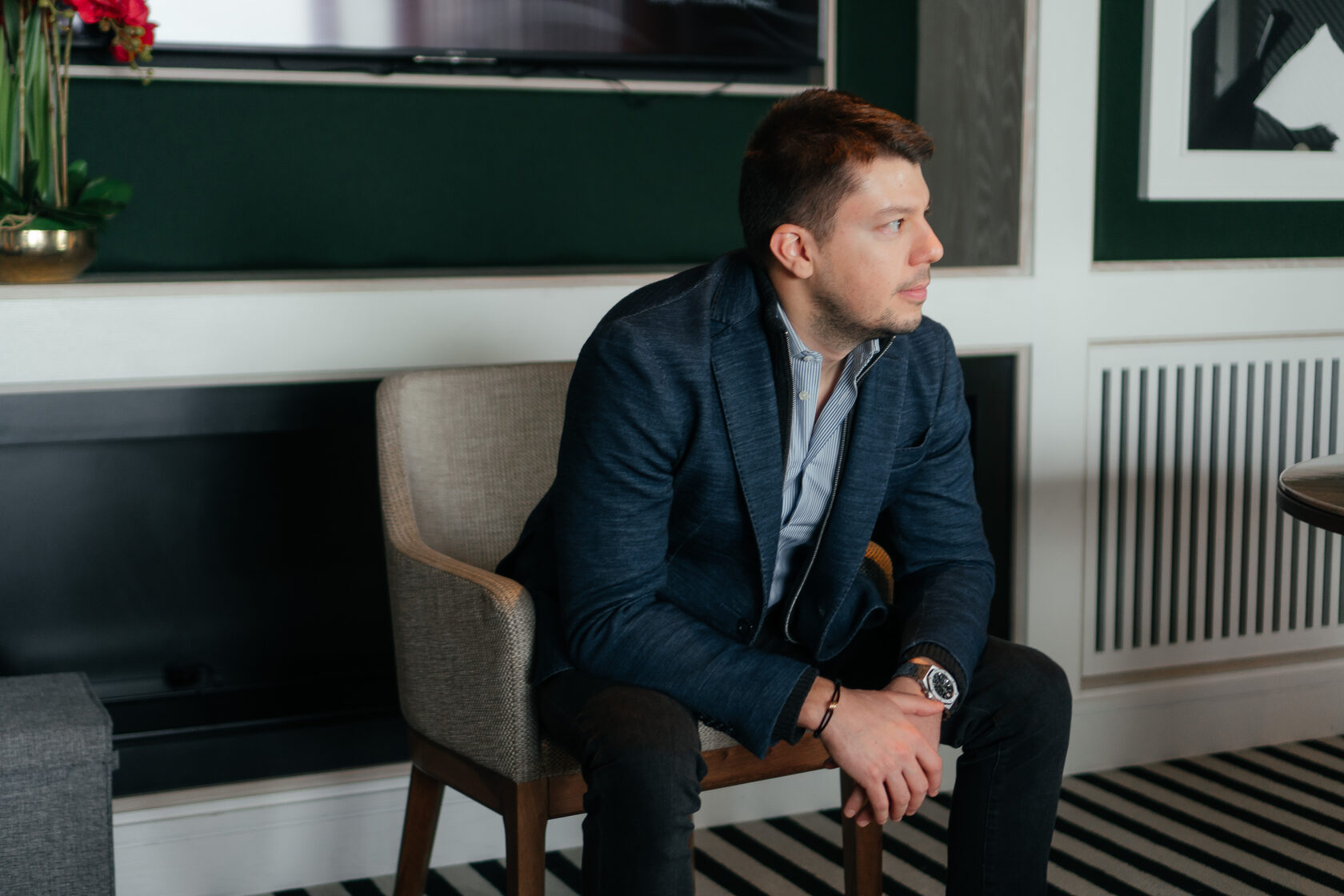
Looking ahead, what are your future goals?
To be open minded. Things that were prevalent yesterday are outdated tomorrow. Due to the dynamic and cyclic nature of the world, there are always new opportunities arising. My goal is to maximise my circumstances and enjoy the journey. This is not only relevant for an entrepreneur, you can also enjoy and thrive in a more corporate context climbing the career ladder, or you feel that you are living up to your fullest potential in a more academic and scientific setting. Everyone is different and is driven by different things.
I strive not to be too bogged down by challenges which ultimately build resilience. I strive to enjoy my time to the fullest and often it’s not all about money. Often people do business not only to earn money but because they enjoy the process of it. As they say, it’s about the journey and not the destination.



